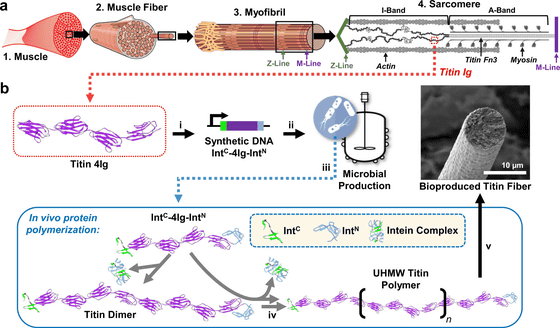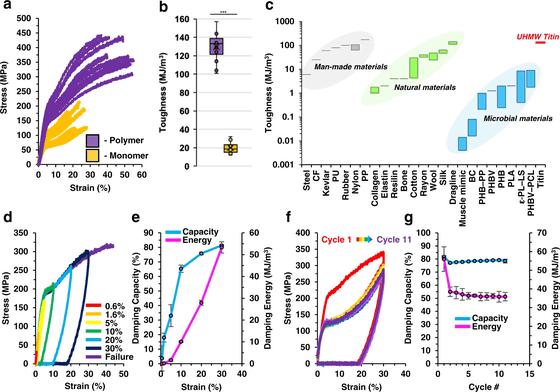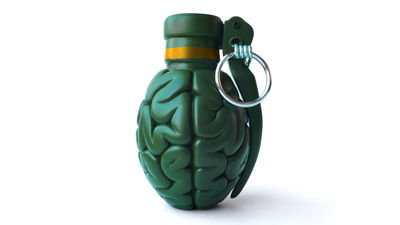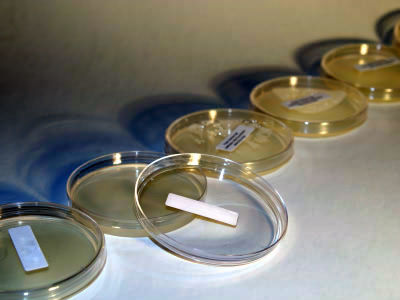Research results show that microorganisms have constructed 'artificial muscle fibers' that are stronger than bulletproof vests

A research team at the University of Washington in the United States has announced that it has created 'artificial muscle fibers' from proteins produced in the body of genetically engineered bacteria.
Microbial production of megadalton titin yields fibers with mechanical properties | Nature Communications
Synthetic biology enables microbes to build synthetic muscle | The Source | Washington University in St. Louis
https://source.wustl.edu/2021/08/synthetic-biology-enables-microbes-to-build-muscle/
Synthetic Bacteria Can Produce Muscle Fibers Stronger Than Kevlar --ExtremeTech
https://www.extremetech.com/extreme/326567-these-engineered-bacteria-can-produce-muscle-fibers-stronger-than-kevlar
Christopher Bowen and colleagues at the Department of Energy and Environmental Chemistry, University of Washington, conducted an experiment in which 'titin, ' one of the proteins that make up muscle, is polymerized into genetically engineered bacteria to form fibers. According to Bowen, titin is the largest known protein in nature, so it genetically engineeres bacteria that bind pieces of titin together, which is 50 times the size of common proteins produced by bacteria. Created 2 Mega Dalton Titin.

In addition, Bowen et al. Constructed a fiber with a diameter of 10 micrometers, which is one-tenth the size of human hair, by bundling

According to collaborator Cameron Sargent, the strength of the titin produced is 'higher than bulletproof vests.' Furthermore, Mr. Sargent said that this time titin is almost equivalent to the protein contained in muscle tissue, so it is considered to have biocompatibility, and it is suitable for sutures and tissue engineering used in regenerative medicine. It points out that it may be.
According to Professor Fuzhong Zhang, who led the research , muscle fibers have long been of interest in robots such as 'soft robotics ' that incorporate the flexibility of living things, and when considering this attempt to 'make artificial muscles directly', animals Instead of collecting muscle from the body, he adopted an approach of letting microorganisms synthesize it in the body. Professor Zhang said, 'This study is highly divisible,' and explained that by polymerizing proteins obtained from nature in a similar manner, proteins with a higher degree of polymerization can be continuously produced.
Related Posts:
in Science, Posted by darkhorse_log







